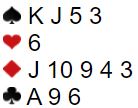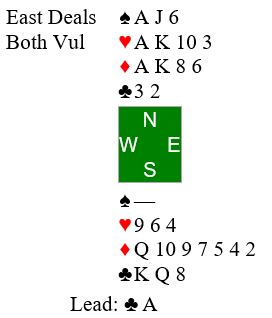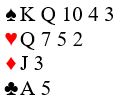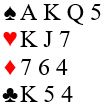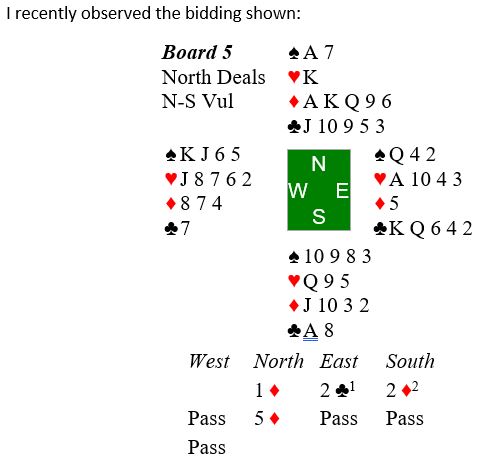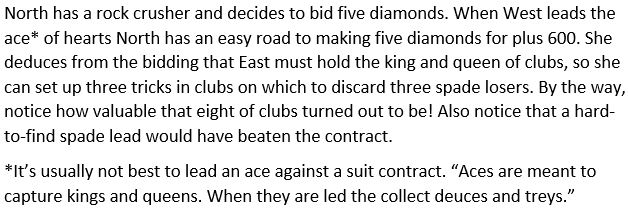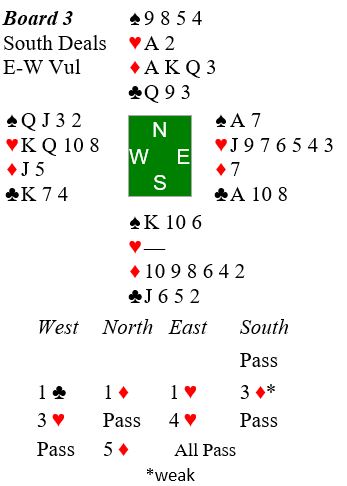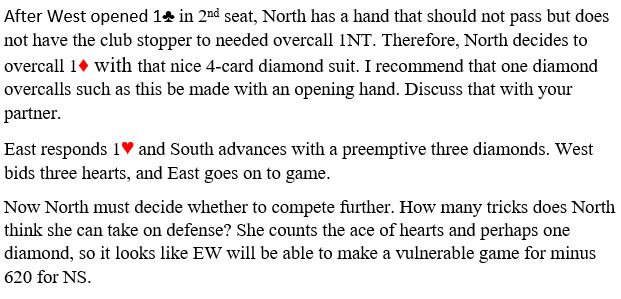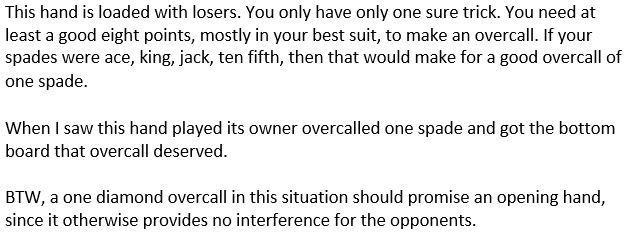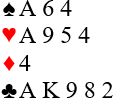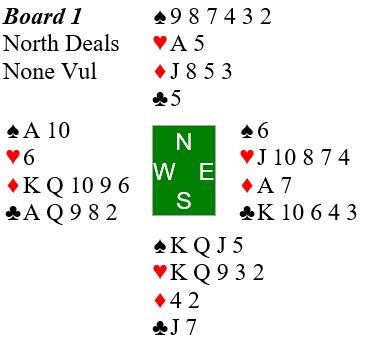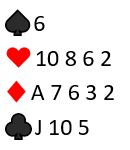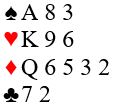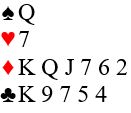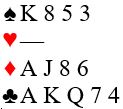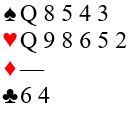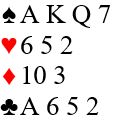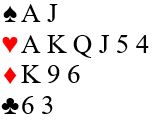I saw this on BBO. Put yourself in 4th seat (both sides vulnerable). Your right hand opponent opens with a weak two spades in 3rd seat. What is your thinking holding this nice hand?
Some Considerations:
- How many tricks can your side take and what is the likely outcome?
- What do you think is your best tactic in anticpation of a competitive auction?
What’s your call? See below for my recommendation and postmortem on the hand.
You count a probable 11 tricks in hearts and clubs. All partner has to have is one ace. The only ace that might not be helpful is the ace of spades. I recommend bidding 3 spades, a michaels cuebid describing a big hand containing hearts and an unknown minor.
That’s the good bid made by the player I observed on BBO. Unfortunately, it was partner who held the unlikely ace of spades. Misfortune was compounded when opening lead wasn’t a spade. Instead it was the ace of diamonds, and opponents quickly took the other two aces for down one. Sadly it was the only table at which a spade was not led. A future post will discuss the opening lead.
